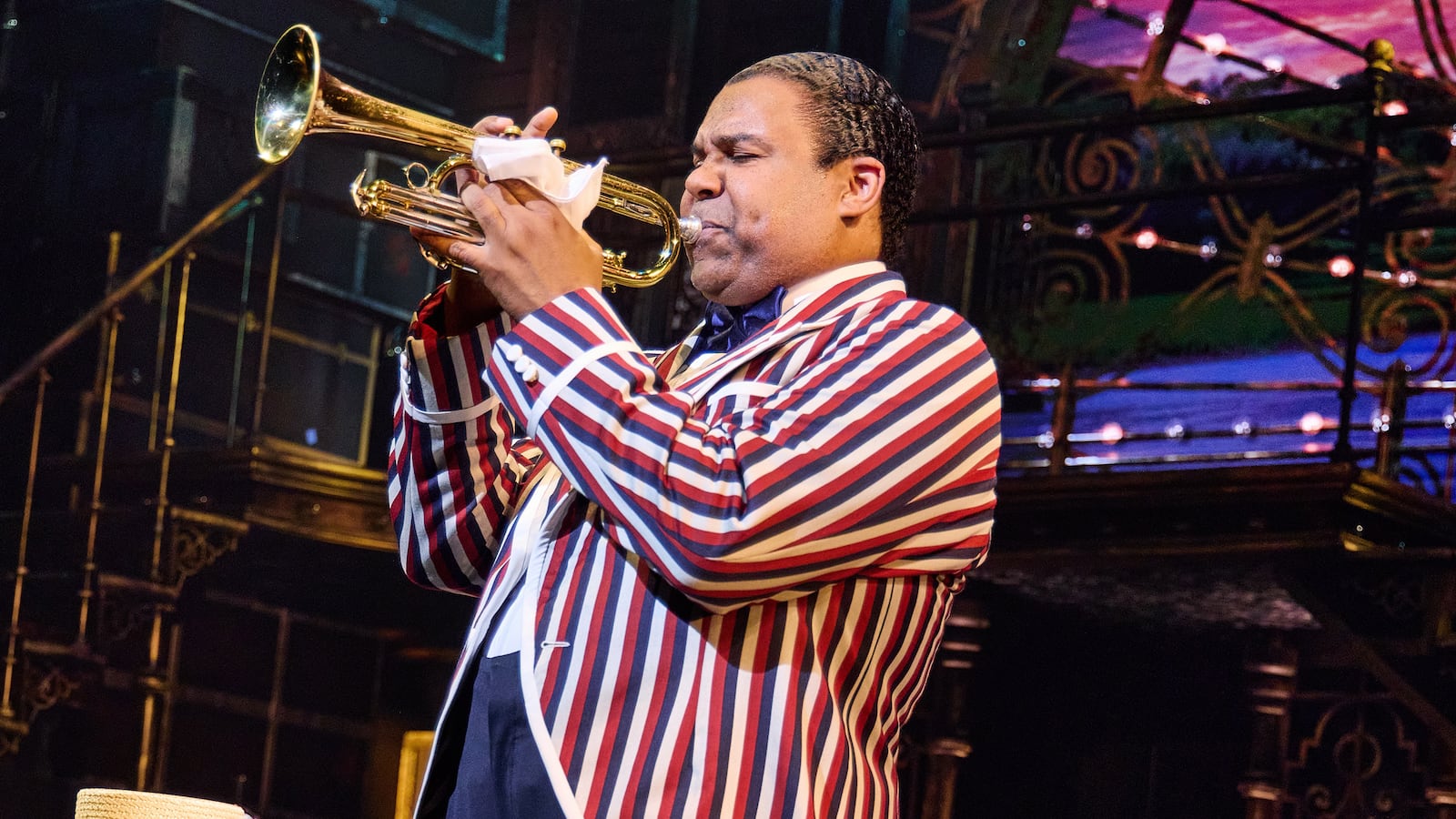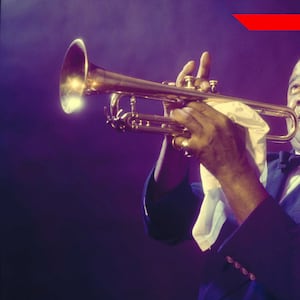The biographical musical faces some of the same questions as the biography itself: What do you leave in, leave out? What is the central story you‘re telling? What are the essential truths and knots of a person and character you’re trying to tease out? What story of a life are we here for?
There is another, harsher question facing the producers of a biographical musical on Broadway: Are people still interested or intrigued enough in this person? Do they still command a hold on the public imagination and people’s curiosity appetites, to merit a financially viable—hopefully lucrative!—musical or play? Brutally, will people pay to come to see the story of this person?
All of these questions are thrown into sharp focus with two Broadway musicals opening this week—Tammy Faye, Elton John and Jake Shears’ musical about televangelist Tammy Faye Bakker which opens on Thursday, and A Wonderful World: The Louis Armstrong Musical, which opens this evening (Studio 54, booking to May 4, 2025), and both take extremely broad strokes to their lead characters.
Perhaps this is inevitable; the expectation is that your core audience is fans. And do fans want to hear anything particularly challenging about their icon? Your next slice of audience could be the musical fan or generally curious. What do you go deep on? Do you even bother? Do you just charge up the jukebox?
Louis Armstrong (“Satchmo,” “Pops”) was an icon who produced iconic music; the title refers to one of his most famous songs which is played at Times Square every new year just after midnight when revelers and TV watchers are bleary-eyed, teetering, some tipsily, between year past and future unknown. Armstrong’s wonderful, rich, guttural timbre is our shepherd between these two tender time zones.
The life of Armstrong as presented by the musical has a few powerful, if unevenly written intertwined strands—around Armstrong’s experience of race and racism and his famous stand against the Eisenhower administration, his brushes with organized crime, and his complicated personal life.
The latter focus provides a showcase (again, too glancing and underwritten) for four excellent actors who deserve more material to work from: Darlesia Cearcy (Lucille Wilson), Kim Exum (Alpha Smith), Dionne Figgins (Daisy Parker), and Jennie Harney-Fleming (Lil Hardin).

Each has a big, barnstormer of a song. But the stories of his relationships with the four women feel incomplete. We get no sense—apart from a properly filled-out story of Lucille and Louis’s marriage—of what he felt or didn’t feel for the women. The trajectory of three of the marriages feels cartoonish. Similarly lacking are a rendering of his years before adulthood, his upbringing, and musical development.
James Monroe Iglehart is an assured Louis in song and speech—his distinctive voice is perfectly modulated—but an inner world, a sense of journey, are both missing. The musical, which he co-directs alongside Christopher Renshaw and Christina Sajous, piles incident upon incident to jam in songs, and progresses jerkily forward—why did he choose to relax in jail so much, as the musical presents? Too often big songs abruptly end, or bump bizarrely into the next setup.
The musical doesn’t extend a coherent thesis about what Armstrong is about and who he is, and what it is showing of his life, bar incidents that are well-known enough to provide basic narrative architecture. We don’t see its central character evolve that much.

The standout dramatic sequence—illustrating the moment Armstrong used an interview to condemn Eisenhower, while in support of nine black students trying, for the first time, to desegregate a school in Little Rock, Arkansas—needs more extrapolation. The full story is fascinating.
Justin Wilkes, the producer of 2022 documentary Louis Armstrong’s Black & Blues, contended, “Race is the number one topic that he‘s grappling with, and contemplating his entire life as a black man growing up in America in the 20th century.” The musical is more tentative around such issues—it doesn’t ignore them (an agent who advises turning the other cheek, a sequence in Hollywood underlines that Armstrong’s fame doesn’t protect against bigotry), but it doesn’t meaningfully interrogate them and their ongoing personal impact on Armstrong.
However, the orchestrations and arrangements (by Branford Marsalis) are rich and delicious; the choreography and musical staging by Rickey Tripp similarly slick. Perhaps this is enough for Armstrong devotees; a boisterous “Hello, Dolly!” which returned Armstrong to fame later in life and a restrainedly luminous “What a Wonderful World” both bring the evening to a resounding close.
But have we gotten to know Armstrong as a musician, husband, cultural force, his politics, his passion for music, his strengths and frailties? Not fully—this is a soft biography, with a soft landing, leaving us feeling just as fuzzily-good as Armstrong’s lovely voice leaves us feeling on the stroke of midnight every new year.






